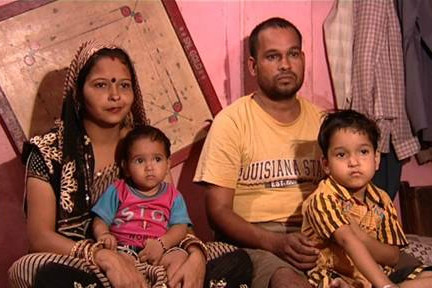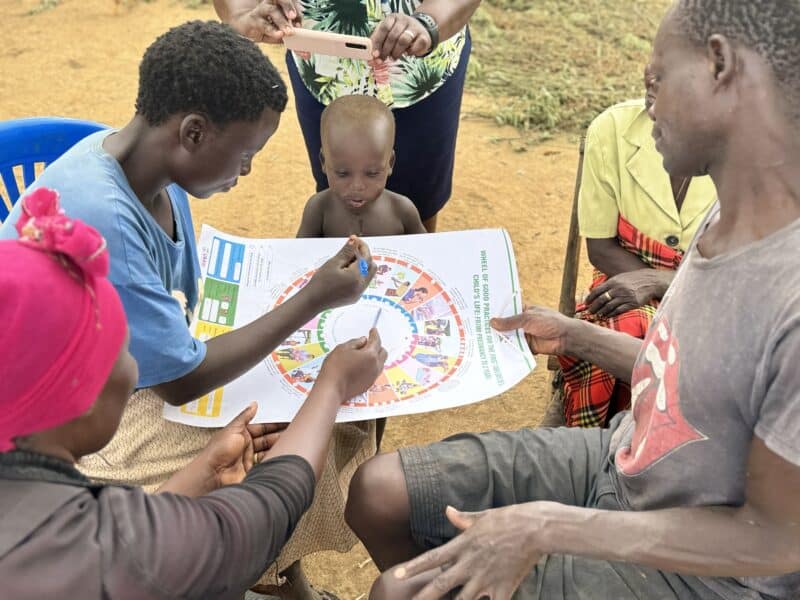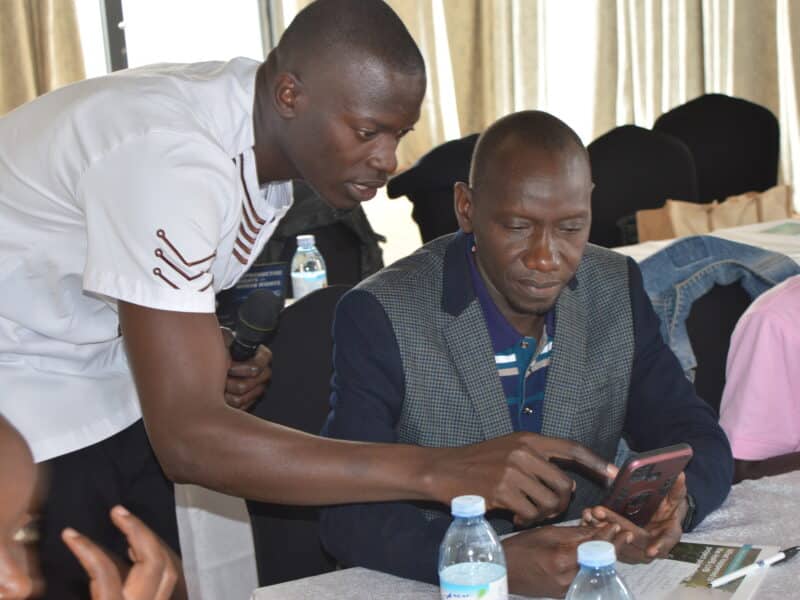After the birth of his third child, Sunil Kumar, a shop owner in Rustampur, Gorakhpur, chose to undergo a no-scalpel vasectomy (NSV). He never told his friends.
Recently, Sunil watched a film featuring Sudama, a man who discusses his decision to have an NSV. In the film, produced by the Urban Health Initiative (UHI), Sudama expresses his satisfaction with NSV as a family planning method and urges others to consider it as well.
The film featuring Sudama is one of several that UHI has produced as part of its demand generation strategy. UHI strives to increase the use of modern contraceptive methods among the urban poor in the state of Uttar Pradesh, India. To achieve this goal, UHI is turning successful FP user couples living in four city slums in Uttar Pradesh into role models and local celebrities who help to break the silence about family planning.
The “role models”, like Sudama, become protagonists in professionally-produced short documentary-style films that air on local cable channels and at various public and private health facilities. The films showcase the couples’ daily lives and highlight their satisfaction with their choice to use family planning.
Through these films, UHI seeks to debunk myths about family planning and encourage conversations about its use. The goal is to increase demand for FP by personalizing mass media messages that resonate with couples. Cable viewers listen to and watch the stories shared by their friends, neighbors, relatives and peers, begin thinking about how they too could benefit from the use of family planning. In turn, they too may become inspired to talk about introducing FP into their own lives.
Sunil Kumar can attest to the powerful effect of the films. After watching the NSV role model film, he was inspired to share his story with his friends. As a result, he has motivated eight men to accept NSV as a family planning method.
UHI Peer Educators have also noticed promising results. They have been raising awareness about the benefits of family planning and report less difficulty starting conversations in their communities about family planning since the mini-documentaries began airing. One Peer Educator explained, “People recognize us in the community and listen to us more carefully after watching the films on cable. Now they approach us for services.”
Local health providers have also seen an increase in individuals and couples adopting family planning. Similar interviews filmed with local doctors have also helped fuel the increased demand. These short films also air on local cable channels and speak to the benefits of family planning, how to seek services, and model caring and responsive service providers in each city.
In addition, the films are communicating the importance of access to family planning services to city leaders.
The Urban Health Initiative is a five-year project funded by The Bill and Melinda Gates Foundation, led by Family Health International, and supported by Johns Hopkins Bloomberg School of Public Health Center for Communication Programs (JHU∙CCP).





